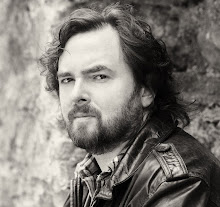The Politics of THE TWELVE
Saturday, June 13, 2009, 7:58 PM
I won't go into the background of the novel's setting; there's plenty of material out there on the Troubles. A lot of the information online is inaccurate, substituting fact for opinion, speculation and omitted truth. One only need read a few pages on Wikipedia to see how distorted some of the truth is, but if you read enough, you should get an idea. Revisionism is something we'll have to live with here, as people on all sides cherry pick history to present the version best suited to their own agendas.
Many will use these narrow windows on the past to justify the actions of certain individuals and organisations, whether they are politicians, security force personnel or paramilitaries. If there's a political thrust to THE TWELVE, it's this: the violence was never justifiable. Republicans may argue that armed struggle was the only way to achieve change in an unjust society. I would argue that the use of violence held back societal reform by decades, while the republican leadership used the blood of this country to grease its way to power. Loyalists may argue that their actions were necessary to protect their people from the aggression of insurgents and a hostile neighbour state. I would argue that the greatest threat to ordinary loyalist people is those same loyalist paramilitaries who to this day continue to leech off their own communities.
What I fear history will overlook is that whatever social conditions provided the kindling for the Troubles, it was the personal agendas of individuals on both sides of the divide that made the spark to ignite the conflict. Those individuals created and perpetuated a war to satisfy their greed for power, status and wealth, and when the war became untenable, they reaped the rewards of the peace process that followed. I don't think that's news to anybody here in Northern Ireland, yet we go out and vote for them election after election anyway.
A point that was raised by two of my beta readers when they reviewed early drafts of the novel was this: why did the ghosts (if they are indeed ghosts, rather than figments of the protagonist's guilt-driven imagination) have no names? The reason for this was simple. The victims of the Troubles, mostly civilians despite what paramilitary apologists would have you believe, are by and large nameless. I'm sure most of us can recall some names, perhaps from particularly notorious cases, or maybe people we actually knew who were caught up in the conflict. I would struggle to name more than a handful of people who lost their lives here. The rest have been washed away by time to become just numbers, lost among more than 3500 such people, now remembered only by those who loved them. Sadly, that number continues to grow in our supposedly peaceful utopia.
A line from John Hewitt's The Bloody Brae is quoted by one of THE TWELVE's characters: God forgives all soldiers. Perhaps that's true. This society certainly seems to have done so, but more out of political expediency than compassion for those who were manipulated into committing terrible sins by the politicians of all hues now dividing up the cake at Stormont. And I, like everybody else, can live with that. It seems a price worth paying if it means my children, should I ever have any, can grow up in a happier place than I did. It doesn't mean it's without pain, though.
Like I said, THE TWELVE was not written to make any political point. It was written as an entertainment, a thriller that will hopefully keep you turning pages into the small hours. If it achieves that simple purpose, then I will be very happy. But all fiction has themes, whether overtly expressed or not. And whether I like it or not, these themes are present in the novel. You can make of them what you will, because really, I just want to scare the crap out of you.
Labels: I don't know what I'm talking about, life, northern ireland, politics, the twelve





